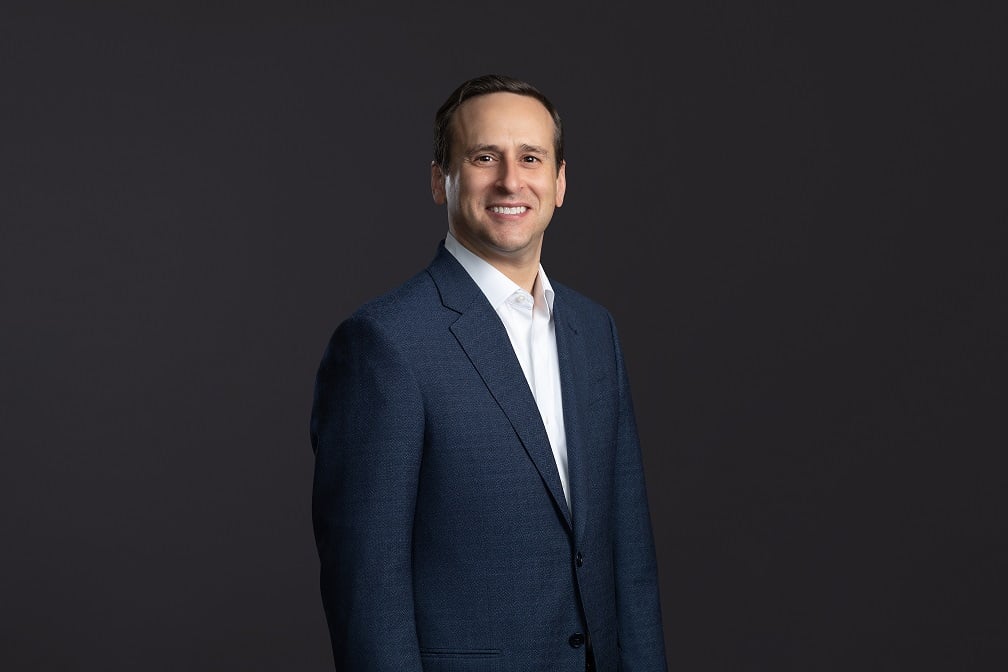Accessories
Check out our full lineup of yoga accessories to help you with your daily meditation practice and fitness goals...
Try our new Cork Yoga Brick for soft but solid support
Check out our full lineup of yoga accessories to help you with your daily meditation practice and fitness goals...
#IAMAVICTOR PROFILE: MEET TROY DOUCET
October 28, 2024 5 min read

About the Victor: Troy Doucet
Troy Doucet spent the first four decades of his life wondering why it was so hard for him to relate to other people. So when several online tests revealed that he had signs of Level 1 Autism Spectrum Disorder, it was like a light bulb went off. Everything started to make sense.
As a successful consumer lawyer in Ohio whose mission is simply to do as much good as he can, Troy has helped hundreds of people save their homes in foreclosure cases and won several decisions that have shaped consumer law at the Sixth Circuit federal appellate court. It doesn't take much digging to realize that law is his personal superpower.
Defending the Law with Autism
Tiffany: A few months ago, you had a post go viral on LinkedIn announcing that you are autistic. What was that experience like for you?
Troy: Finding out I had autism was a little bit of a fluke. Coming out of COVID, I was experiencing depression. I own the law firm here, and we had taken a big hit during those couple of years. So I started looking for resources to get back into therapy. As I was going through that whole process, I woke up one morning, and I thought, "Maybe I should see if I'm autistic."
I didn't take it too seriously. It was sort of one of those little birdies in your ear. But a few days later, I took a few online tests, and they all said that I had indicators for it. It took a few months to process and come to that realization because, in the very beginning, you think, "I can't really be autistic. I own a business. I'm a lawyer." You have this perception sometimes of what autism looks like, but you don't really think about it in terms of yourself until something happens.
Finally, I saw a professional and went through the diagnostic process. And coming out of it, I was absolutely thrilled. It was just a wonderful thing for me to find out that the challenges that I have faced all my life were less a function of me being deficient and more a function of my brain just being wired a little bit differently than other people.
|
"It was just a wonderful thing for me to find out that the challenges that I have faced all my life were less a function of me being deficient and more a function of my brain just being wired a little bit differently than other people."
|
Tiffany: What were some of those challenges you faced that finally started to make sense?
Troy: Well, one of the things that are common to a lot of autistic kids is being bullied. I spent several years being pretty severely bullied. Maybe that's why I became a lawyer, to fight for the little guy.
Professionally, I'm very empathic. But I don't think in terms of emotions. So I can say things that cause people to look at me like, "Why are you saying that out loud?" To me, it's sort of like an obvious observation, or what I perceive to be a factual statement, but it's not politically correct, or it is not what other people expect to hear. There's a lot more dancing around in society than you might think. People avoid saying things that might be true because they're afraid of whatever the repercussions are. I don't have that filter, and that's presented problems for me.
Tiffany: How has your autism diagnosis changed how you show up in your work and for your clients?
Troy: It was really profound and life-changing for me to know who I am and what I am about and to know that the way that I think and act about things is okay. But it also gave me even a more heightened degree of comfortability with the people that I deal with. They know I'm autistic, and so they know that the way that I'm going to approach things is maybe not what they would expect from everybody else. So in some senses, it has made my life better because there's an implied or an understanding or an assumption that things might be a little different.
But it's also a little sad if you think about it. What really makes me feel more comfortable about myself is knowing that other people are going to feel comfortable about me. At 43 years old, I'm still shaped by being very cognizant and sensitive to the way other people might react to me. I think that one of the biggest challenges that autistic people face today is that there's this need to shape who we are and be somebody different to make other people feel more comfortable with us or accepted into society at all. It's hard.
| "At 43 years old, I'm still shaped by being very cognizant and sensitive to the way other people might react to me. I think that one of the biggest challenges that autistic people face today is that there's this need to shape who we are and be somebody different to make other people feel more comfortable with us or accepted into society at all. It's hard." |
Tiffany: While the aspect of your job that involves working with people in emotional states must be challenging, I'm sure your autism helps you in your work as well. How do you find that your autism strengthens your career?
Troy: My clients come to me because I'm very good at the law. My special interest—my power—if you will, is the law. I have a lot of logic, and the law is logical for the most part. There's a lot of emotion involved too, but it's rule-based, and I'm very good at rules. People with autism talk about thinking a few steps ahead or seeing around corners, and very much like that, I can see the end result of a lawsuit when I'm starting it based on the factors that are involved. So it really has helped me.
Tiffany: Do you think things would have been different for you if you found out about your autism earlier?
Troy: Sometimes, I wonder if it would have been helpful for me to discover that I was autistic earlier in life. It certainly would have been easier in the bullying days, for sure. As a child, I didn't inherently know how to interact with people. I've had to learn either through courses, watching other people being taught, trial and error, or from somebody mentoring me.
When you're an adult, it's a lot more difficult. Because if you don't understand these things, you're not going to have a lot of friends sitting around and explaining them to you. They're just not going to be your friends anymore.
Tiffany: Looking at where you are now and how you've navigated this shift in self-perception, what would you want to say to your younger self and anyone really who suspects they may be on the autism spectrum?
Troy: I've said this over and over, but find out if you're autistic. And if you are, you should be telling people about it. There is a lot of fear that co-workers, friends, and employers might not appreciate it. If that's the case, then, frankly, you don't need those folks in your life if they're not going to be nice to you. What I've found is that when you're open about something, the people who respect that and like you for who you are and your differences they're going to be around you.

